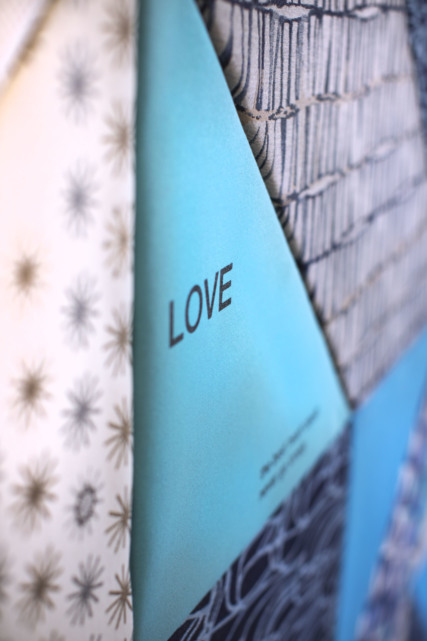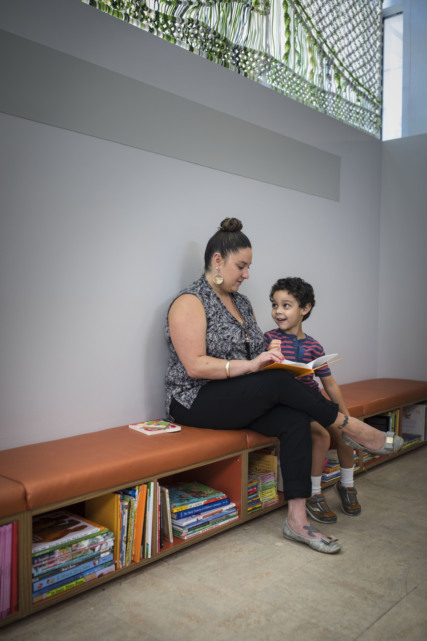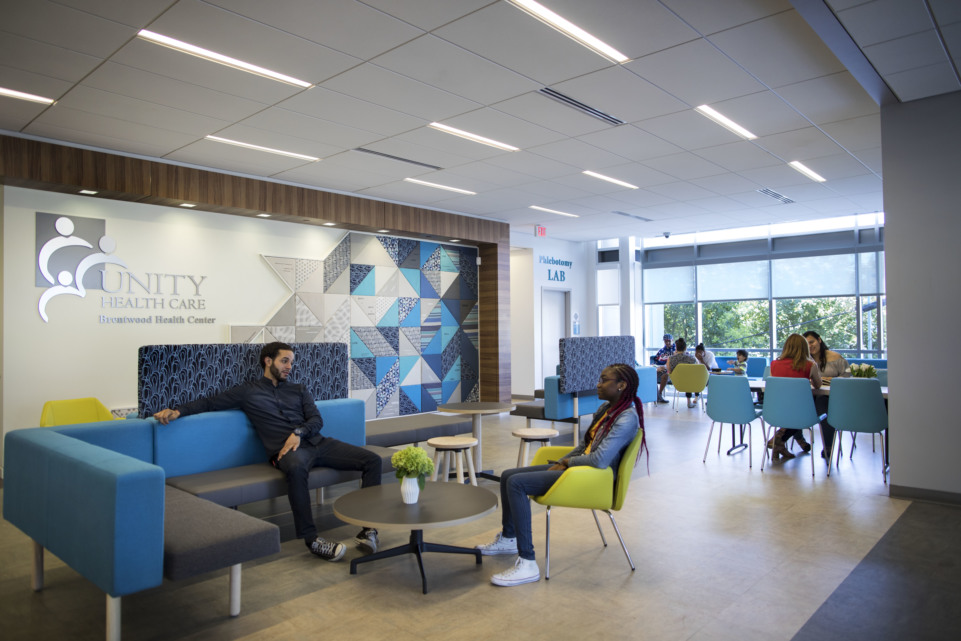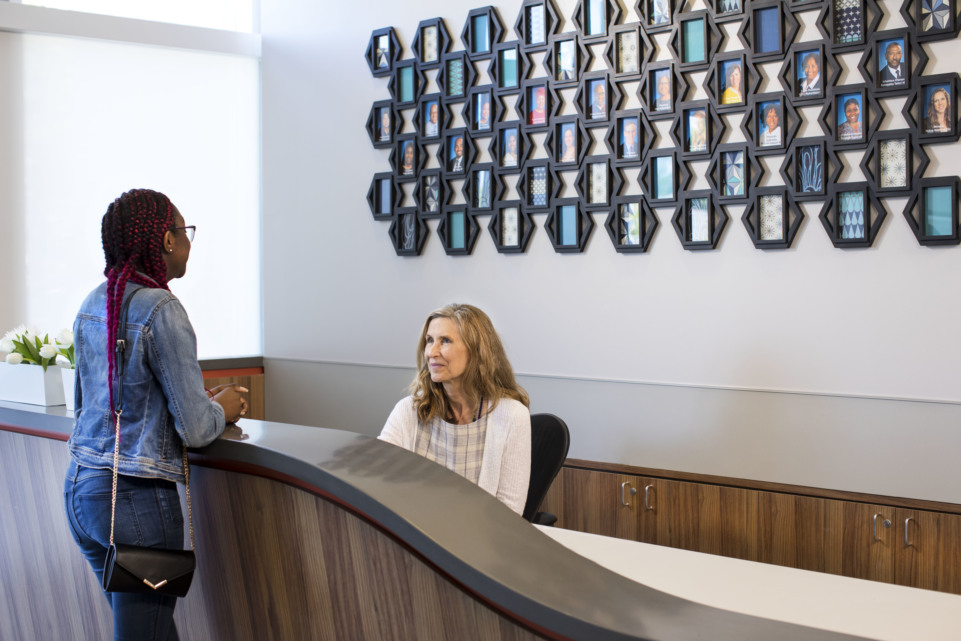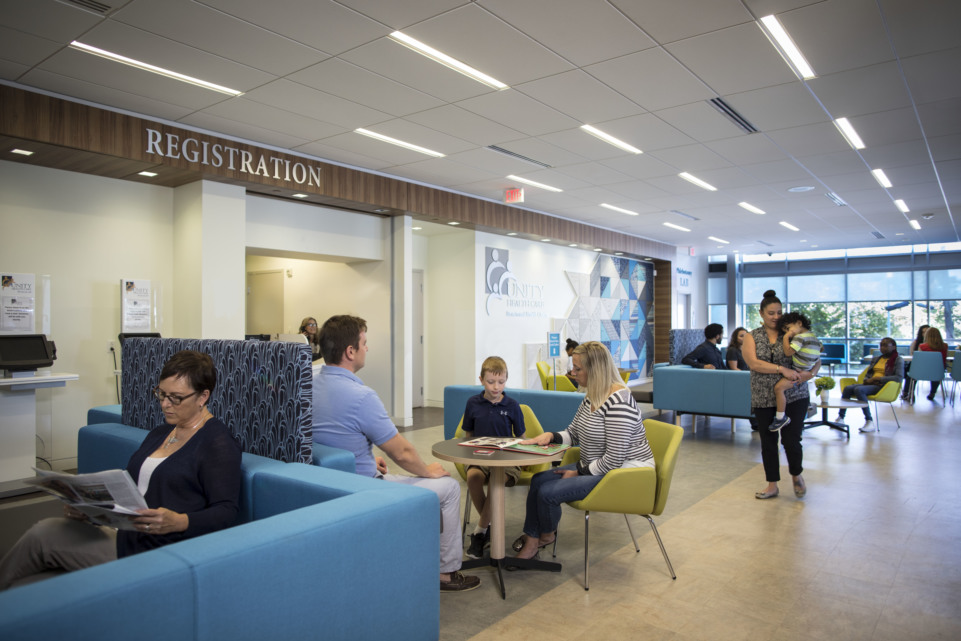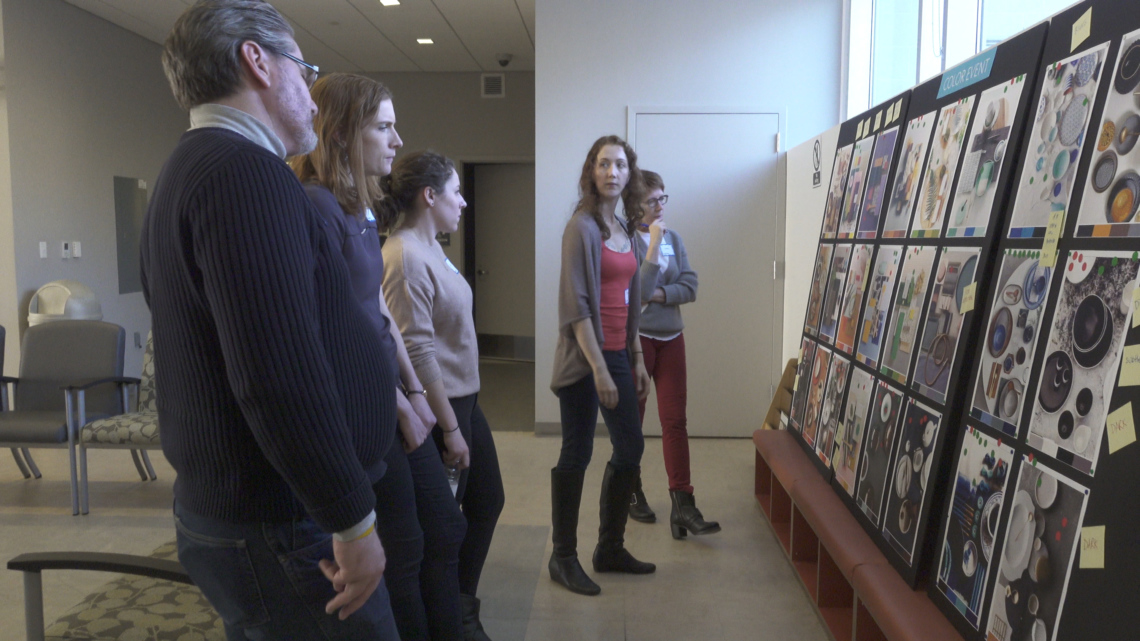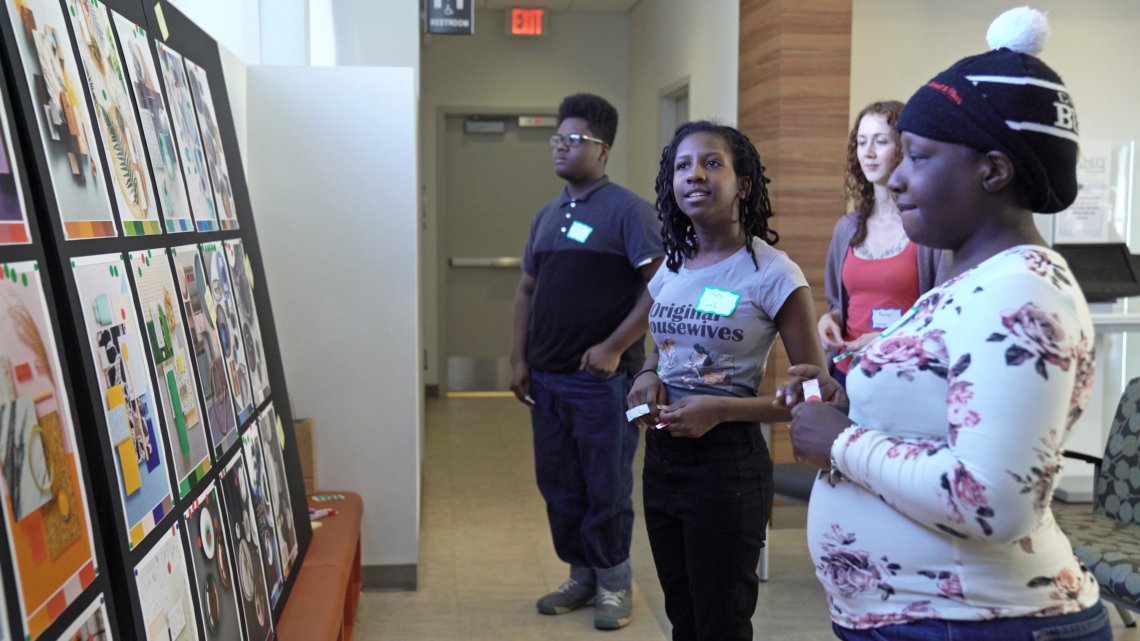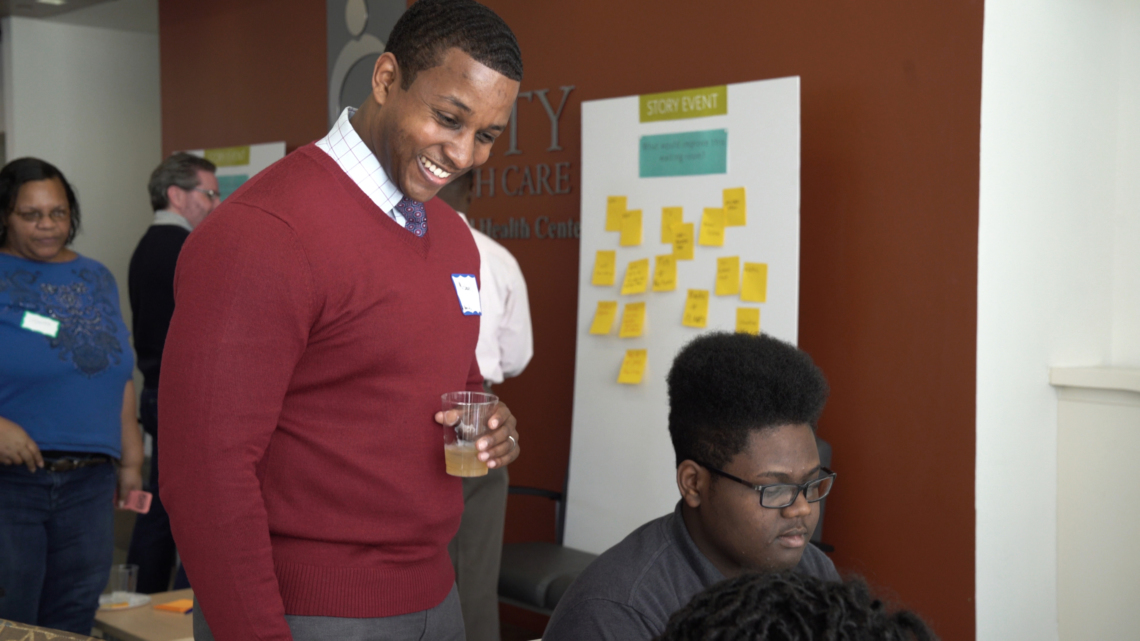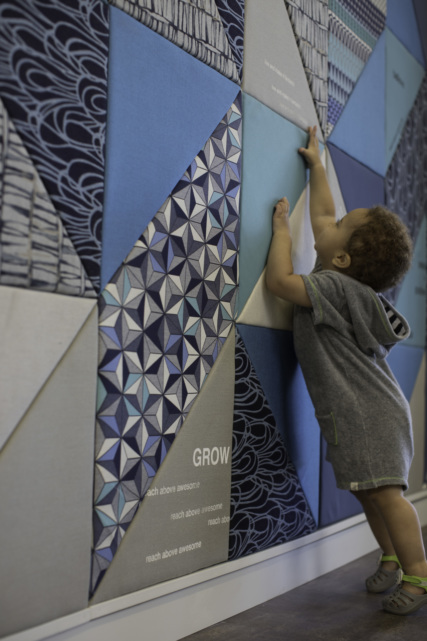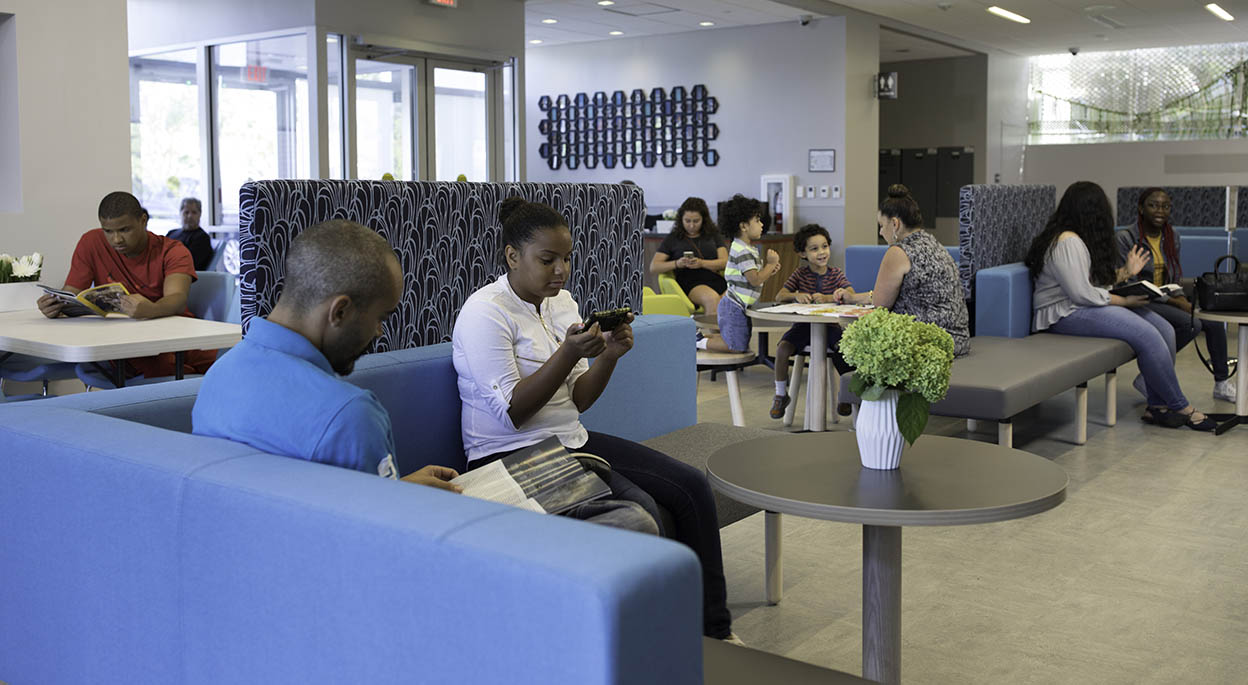
Unity Healthcare
Unity Health Care is a team of compassionate and multicultural health professionals that provide a full range of health and human services that reach every facet of health, from pregnancy and infancy to senior years. Focused on well-being and as a patient-centered medical home (PCMH), Unity offers a team- based approach that encourages patients to become active participants in their own healthcare. Unity was founded in 1985 as the Healthcare for the Homeless project, and serves with the mission to promote healthier communities through compassion and comprehensive health and human services, regardless of ability to pay.
WINNING PROJECT:
ASID 2019 Outcome of Design Awards (Category: Process)
Project Type:
Healthcare
Location:
Washington, D.C.
Size:
2,200 SF
Case Brief By:
 |
The Design Challenge
Unity’s goal was to use design as a tool to help better serve patients and visitors, enhance the staff experience, strengthen bonds with the Brentwood community, and, ultimately, improve community health. They sought to create a sense of community and reflect the aesthetic preferences of the Brentwood neighborhood.
The Design Solution
- Defined personal space through furniture selection and layout, to increase spacing between seats, and elements to help create boundaries.
- Created a clear path to registration and replaced the numerous confusing signs with a simple station designating where to queue for check-in to clarify the process.
- Encouraged communication by designing conversational seating arrangements that included multiple small clusters and a large communal table.
- Designed a quilt wall of fabric-wrapped triangles that incorporated the community’s aesthetic preference for visually complex patterns and bright, saturated colors, and included the community’s own inspirational words hand silk-screened on select areas to reflect the community.
- A macramé piece inspired by an outline shape of the Brentwood neighborhood within a map and the use of various cords and untraditional knot pairings represent the diversity of the community.
Impact of Design
- Wider seat selections and increased spacing between seats added seven seats and resulted in increased seating utilization.
- Art representative of the community increased staff happiness by 45 percent.
- Complaints about wait time decreased by 25 percent, although no change in perceived wait times.
- The new furniture arrangement increased communication among patients by 100 percent in instances between people who did not arrive at the clinic together.
PROCESS
Timeline
- Project Completion: October 2017
Project Team
- Design: Gensler
- Research: Gensler, Sunbrella, Unity Health Care Brentwood
- Construction: Rand Construction
